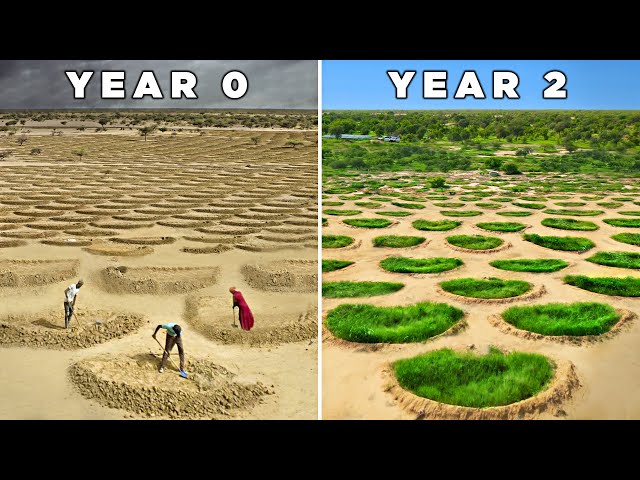- cross-posted to:
- environnement@jlai.lu
- hackernews@lemmy.smeargle.fans
- cross-posted to:
- environnement@jlai.lu
- hackernews@lemmy.smeargle.fans
THe Great Green Wall being built in Africa to halt the southern progress of the Sahara Desert is a favorite public works project of mine — it’s massive, ambitious, long-term, important, and if it works, the effect will repay the cost many times over. This video takes a quick look at some of the work being done on the wall in Senegal.
That was the most brilliant and hopeful thing I’ve seen in ages. Real Fremen shit. Blue-eyes of the Ibad, Dr. Liet-Kynes kinda shit.
This sort of landscaping builds on itself. More biomass makes more biomass. More biomass means more water, and then more biomass. More biomass, more ecological diversity. It’s exponential.
I’m working on this on my own patch of NW Florida swamp. Just changing up a few hundred square feet of land makes an impact. Grind a few hundred sq./ft.? Makes a hot zone, light for growing. Leave it alone? Cool trails, but little diversity.
Tear up some plants along the trail? Erosion. Plant on those same cleared trails? Food and medicinal plants, stops the erosion.
But I must be cautious! 20’ can make the difference in rich, black soil and 1.5" of meager topsoil. Even in my backyard, when I wonder into the very back where it’s 60’ of wild, the temp drops 5°. All too easy to fuck up.
This whole project makes my heart sing. The Great Green Wall is not merely a temporary fix, it’s a solid fix than can last. Terraforming at its finest.
I think what’s really great about it is that it is not just a fix for the environment but a fix for social cohesion, for migration of youth from towns to cities and abroad.
If you have areas that aren’t bereft of hope and a future then the young people don’t leave and end up being part of the migration to cities that can’t sustain large populations without food importation.
You don’t have towns dying when only the old and infirm are left behind, families grow, food and jobs are local, and most importantly, people care about the land that sustains them.
Studying desertification is what led Frank Herbert to write Dune, so definitely spot on.
Bravo, well said.
This is legitimate forms ot terraforming
The original plan of just planting trees did not work out as far as I know. But they seemingly switched to using the methods developed by Tony Rinaudo on how to utilize what is left on the land to restore it. There is a wounderful film about him and his work Der Waldmacher . I had the chance to watch one of the early cinema screenings of the documentary with the director Volker Schlöndorff being there to answer some questions. It was really cool.
I have watched some videos on it, very cool. That said, I pretty sure those photos in the comparison are taken at different times of year?
It is explicilty mentioned at the beginning of the video, that the country is as green as it gets, since it is the end of the rainy season.
All the area that is filled with the half moon structures would be barren during rainy season too, as you can see with the soil around the half moons. It will look less impressive at the driest time of the year, but the positive effects of retaining biomass and water will remain present.
I was talking about the comparison image that appears in the post (pulled from the article)
Awesome!!
The only thing I can’t stand is the voice in the video. Nonetheless very informative. I really hope they can hold the desert back.
At about 3:40 the introducer steps aside and it gets far more practical, too!







